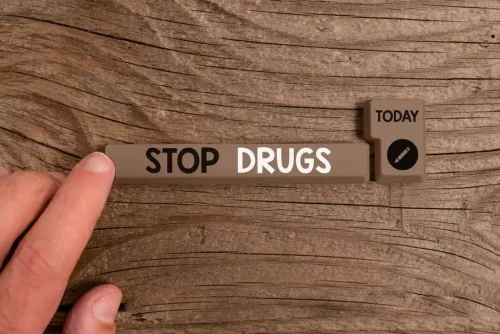
Educational topics in addiction recovery groups focus on the nature of addiction, its causes, and its effects on the body and mind. Addiction recovery groups cover various essential topics that aid individuals in their journey to sobriety. Group therapy can also involve activities and exercises that promote bonding and teamwork. Engaging in these activities can further strengthen relationships within the group, making the recovery journey a shared experience. Discussing issues such as blame and forgiveness can be particularly effective in a group setting.
Learning to Say No

During anger management groups, therapists provide guidance and instructions on anger management techniques, and other group members may share their experiences. Role-playing difficult situations with peer feedback takes practice to a whole new level. It’s like a real-time strategy game where the goal is developing better coping mechanisms. Imagine groups racing to identify and challenge negative thoughts, passing the baton of positivity from one member to another.
The Role of Humor in Recovery

It’s like a dress rehearsal for real-life challenges – minus the actual stress. As we reach the conclusion of our exploration, it’s clear that the power of group therapy in addiction recovery is multifaceted and profound. The diverse range of topics covered in these sessions provides a comprehensive approach to healing, addressing the physical, emotional, and spiritual dimensions of recovery. The role of nutrition and exercise in recovery is an often-overlooked yet crucial aspect of healing. Educational sessions might cover topics like the impact of diet on mood and energy levels, or the benefits of regular physical activity in managing stress and cravings. This holistic approach to recovery acknowledges the interconnectedness of physical and mental well-being.
A Chronic Condition Demands Ongoing Care
However, you can always come into group therapy with a theme in mind to help get the conversations started. This is where group therapy can come into play and really help a person through their addiction. In support groups, you are surrounded by other individuals that have similar goals to you. They want to overcome addiction, get help, and be happy in their own skin. The helpline at AddictionResource.net is available 24/7 to discuss the treatment needs of yourself or a loved one.
Find Ways To Show Gratitude
- Understanding addiction helps individuals recognize it as a medical condition rather than a moral failing.
- It brings people with everyday shared experiences together to share and learn from each other.
- One of the most uplifting early recovery group topics is discussing how to find joy in sobriety.
- In therapy, you will discuss this with others and explore why you think negatively, its impact on your relationship with yourself, and how you could change.
- These topics center on education, emotional health, coping strategies, and personal growth, providing comprehensive support and guidance.
Initially, individuals may be in denial about their disease or symptoms. Acknowledgment leads to contemplation, where the need for change is recognized. Acknowledging and celebrating small achievements can boost morale and motivation in recovery.
Exploring the Benefits of Nature

This can include learning to cope with uncomfortable emotions and situations. Additionally, this can promote an environment where group members feel comfortable asking for help when they find themselves struggling. For group members who are new to recovery, topics for addiction recovery groups group sessions can provide valuable education about addiction and recovery. Group therapy sessions provide an environment where individuals can share their experiences and receive feedback from others.

- Group therapy helps you identify your triggers and learn coping strategies to help you get through them.
- Support systems are vital for long-term recovery, offering encouragement, accountability, and assistance.
- Suddenly, the shame and stigma that often accompany addiction begin to dissolve.
- Group therapy provides a platform for individuals to share their personal triggers and learn from the triggers of others.
- Forms of charades like emotions charades can also encourage participants to explore their emotions and become more comfortable with them.
- Creative outlets allow members to process emotions and express themselves in healthy ways.
Recovery groups also often role-play these hard conversations to assist in the stress management. Group therapy helps you identify your triggers and learn coping strategies to help you get through them. Everyone goes through the recovery process differently, but talking with others who are actively in it can help prepare you for what lies ahead. In group therapy, you will discuss a variety of topics and prompts to help open the group up to each other and get to the bottom of their problems. If you’ve ever been scared about sharing your addiction story, you don’t have to be in group therapy for substance abuse. If you or a loved one is looking for substance abuse treatment, you can find it today.
- From financial management to job seeking skills, these sessions aim to equip individuals with the tools they need to build a stable and fulfilling life in sobriety.
- The key is to maintain a spirit of openness and flexibility, always ready to adapt and innovate.
All substance abuse topics, including activities, will be slightly different. Dialectical Behavior Therapy (DBT) skills for emotional regulation can be particularly helpful for individuals struggling with intense emotions or impulsivity. These sessions might focus on mindfulness, distress tolerance, interpersonal effectiveness, and emotion regulation skills. The group format allows for practice and feedback, reinforcing the application of these skills in real-life situations. The road to recovery is paved with numerous challenges, each requiring its own set of tools and strategies.